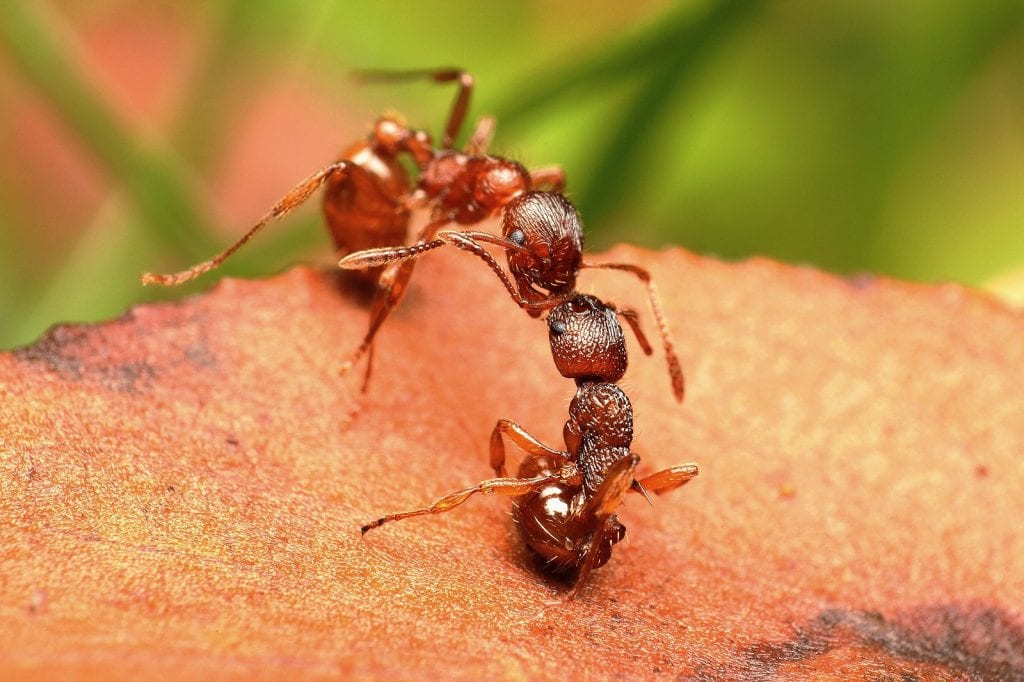Last updated on October 23rd, 2023 at 08:52 pm
Ants are widespread and are considered a very adaptable species. Over 12,000 species are known worldwide. They are particularly robust when it comes to temperature and can survive even in the most hostile environments. Therefore, they feel at home on all continents.
If you notice ants in your garden, this could initially lead to uncertainty. This is because the ants can undermine roots and leave damage to plants.
The different lifestyles also refer to the activity of ants. In general, you do not have a preferred day and night rhythm. Therefore, it is said that ants are neither diurnal nor nocturnal. They follow their own rhythm of life and do not necessarily align themselves with the time of day.
Nevertheless, depending on the species, there may be clear preferences that indicate a more distinct nocturnal activity. Which ants are considered nocturnal and what factors influence the activity of these small animals?
Contents
Which ants are nocturnal?
Unlike other animals, ants can hardly be said to be nocturnal. There are species that are predominantly nocturnal, but this does not mean that they completely avoid the daytime.

The following genera are believed to be mostly nocturnal. These ants are found in Europe and also haunt your garden.
- To be found in the garden
- Myrmica – red ants
- Lasius – Path ants (mainly nocturnal)
- Tetramorium – lawn ant (also nocturnal)
- General species
- Camponotus
- Crematogaster
- Dolichoderus
- Linepithema (also nocturnal)
- Messor
- Monomorium
- Stenamma
- Tapinoma
- Temnothorax
What does the night activity depend on?
In your environment, red ants and path ants will be more common. These species are considered nocturnal, but are also active during the day. Whether a particular colony is nocturnal depends on the following factors.
Time of year
While ants hardly follow a general day and night rhythm, this looks different during the year. It can be observed that ants go dormant in winter. In contrast, they are particularly active in summer to find enough food for the winter. The higher activity in summer is accompanied by the ants becoming increasingly nocturnal. The nest is constantly growing and there is hardly enough space for all the workers. Therefore, the animals are forced to be active at night.
Temperature

With the cold in winter, most ants come to rest and try to expend as little energy as possible. The ants also reduce their activity during particularly hot temperatures.
During hot spells in the summer, workers take it easy in the hot midday temperatures. They prefer to shift their activity to the morning or evening. On particularly hot days, they are also entirely nocturnal to avoid working in the heat.
Weather conditions
In addition to temperature, weather conditions also affect how active ants are. If it is particularly humid, the food supply could suffer in the summer. Ants must travel long distances and be active at night to find enough food.
Food sources
Essential to the survival of ants is the presence of food sources. Ants are constantly searching for food to provide for the winter.
If there are aphids nearby, the ants benefit from their honeydew. They find the honeydew mainly during the day, which is why the ants venture out of the nest at this time.
Other food sources, on the other hand, cause the ants to be nocturnal. However, these specializations are less common.
Other ant colonies
If there are other ant colonies in the vicinity, they are not exactly friendly to each other. If they meet, conflicts are foreseeable.
To avoid this, both nests develop an opposite day-night rhythm. One nest is more active during the day, while the other uses the night for itself. As a result, the ants largely avoid each other and do not get in each other’s way.
Age of the ant nest
In young ant colonies, it can be observed that they are predominantly busy building their nests. They are only rarely active outside and initially focus on the expansion of the nest.
If the ant colony is a bit older and the nest is far advanced, more outside activities can be heard. The ants go foraging and large states also use the night for this.
Do ants sleep?
In addition to nighttime activity, you might also be interested in the question of whether ants actually sleep. Because usually you see the small creepy-crawlies working non-stop and rarely taking a break.
Ants sleep for several hours throughout the day. However, each rest break is only a few minutes short. Thus, there is no longer coherent sleep phase.
Not only outside, but also inside the nest there are plenty of tasks that have to be completed. The nest must be maintained and the offspring must be cared for. If the ant is not asleep, it is working non-stop.
Are nocturnal ants more dangerous?
The animals that are active at night are often considered more threatening. They are better adapted to the night and thus hunt unnoticed by humans.
In the case of ants, such a difference is not discernible. The species or states that predominantly use the night are not considered more dangerous. However, the risk for wanderers to accidentally disturb an ant nest is higher. This could be accompanied by some bites and skin reactions. You should also keep enough distance from the ant nest at night.
How can you take action against ants?
If you discover the ants at night in the house or the kitchen, the procedure is similar, with the ants encountered during the day. You should expel them as soon as possible so that no damage is done.
The most effective way to do this is to set up ant traps. These are equipped with a bait, which the ants carry into the burrow. There the ant poison is taken up by all inhabitants, so that an effective fight takes place.
Also, protect your house by closing any gaps and access points. This will prevent the ants from gaining access and allow you to use gentler home remedies.
The nocturnal ants
The small crawling insects do not have a fixed day-night rhythm, as is the case with humans, for example. They adapt to the environment and adapt to it perfectly. Therefore, there are some species that use the night to search for food. Most ant colonies are most active during the day. At warm temperatures, however, they also use the night to find new food sources there.


